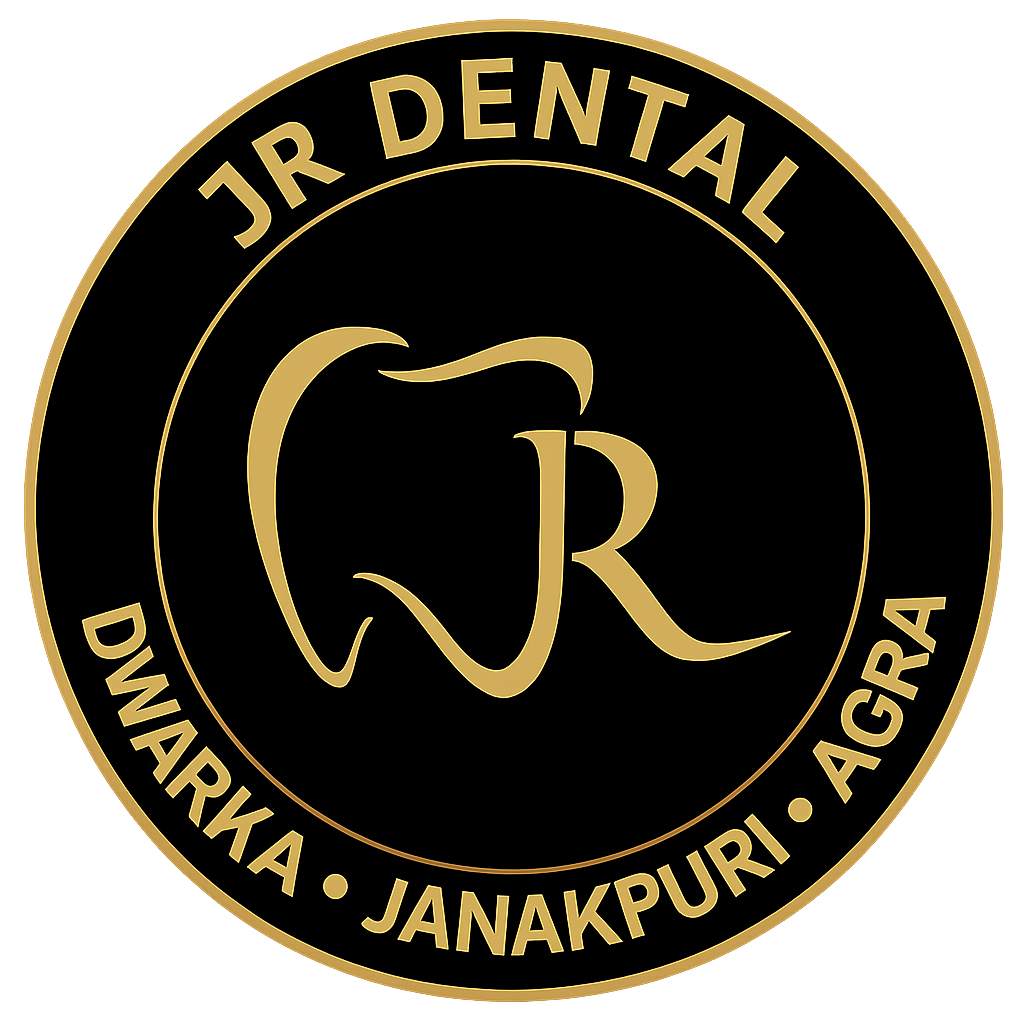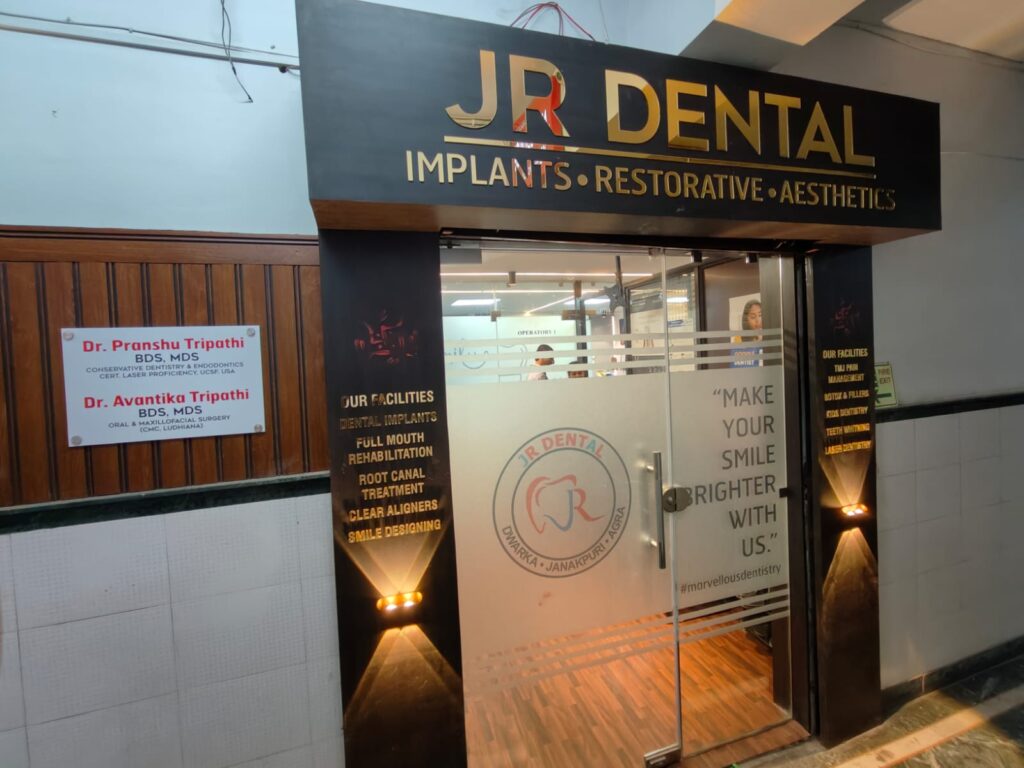JR Dental Service
Dental Implants in Dwarka
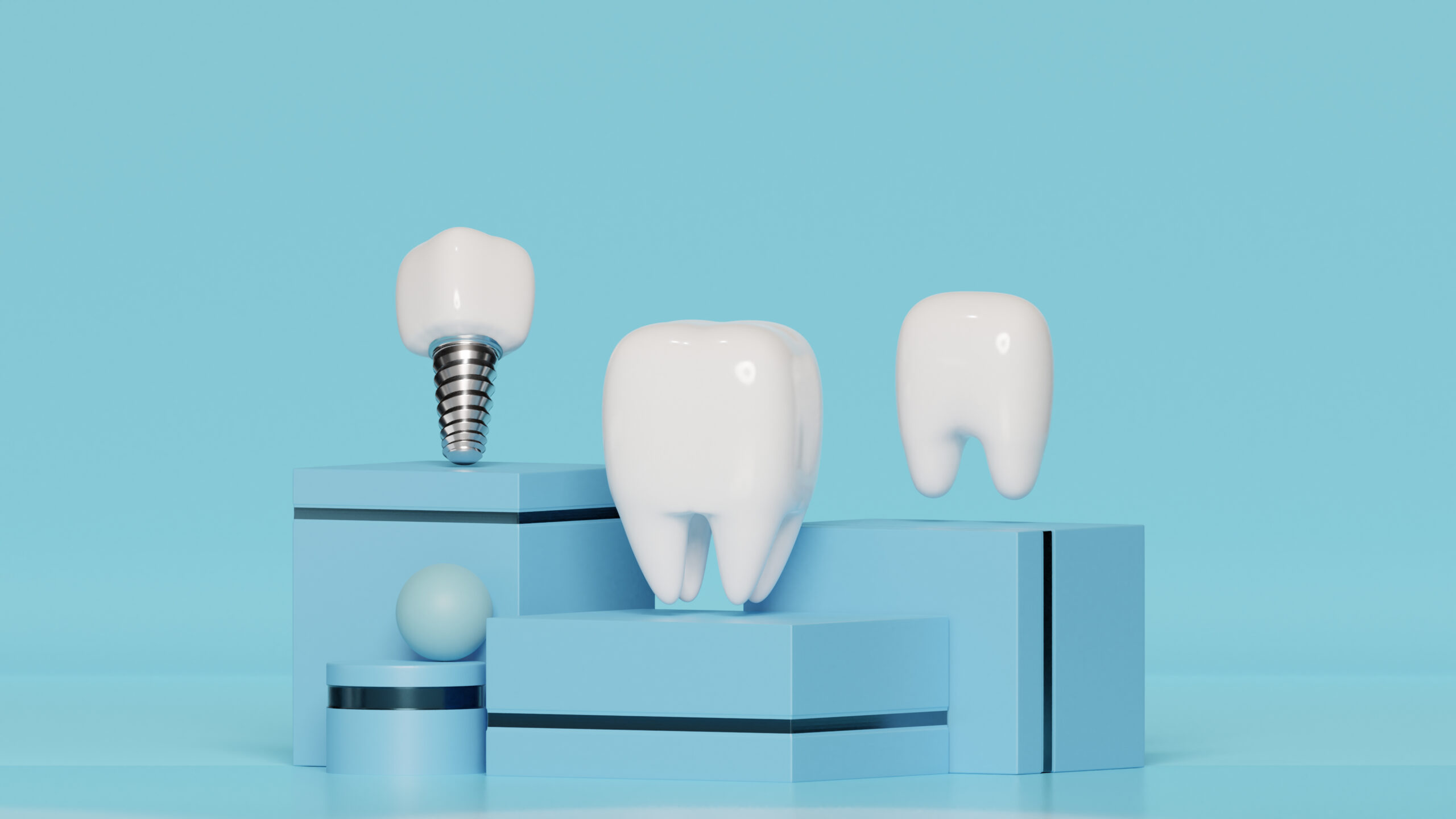
What is Dental Implant?
A dental implant is a modern tooth replacement option designed to look, feel, and function like your natural teeth. Unlike dentures or bridges, implants are surgically placed into the jawbone, where they act as artificial tooth roots. Over time, the implant fuses with the bone, providing a strong and stable foundation for a crown, bridge, or denture. This makes them one of the most reliable long-term solutions for missing teeth. Dental implants restore more than just your smile—they bring back your confidence, improve speech, and allow you to eat comfortably without restrictions. Whether you’ve lost a tooth due to injury, decay, or gum disease, dental implants can help restore your oral health and give you the freedom of a complete, natural-looking smile
How Dental Implants Work
Dental implants work through a process called osseointegration, where the titanium post of the implant fuses naturally with the jawbone. This process ensures stability and strength, similar to how natural roots support your teeth. Once the implant is securely integrated into the bone, a connector (called an abutment) is placed on top, and a customized crown or bridge is attached. The result is a tooth replacement that not only looks realistic but also feels secure. Unlike removable dentures, implants do not slip or cause discomfort. They also prevent bone loss in the jaw, which commonly occurs after tooth loss. By preserving bone density and maintaining facial structure, dental implants provide both functional and aesthetic benefits that last for many years, often decades, with proper care.
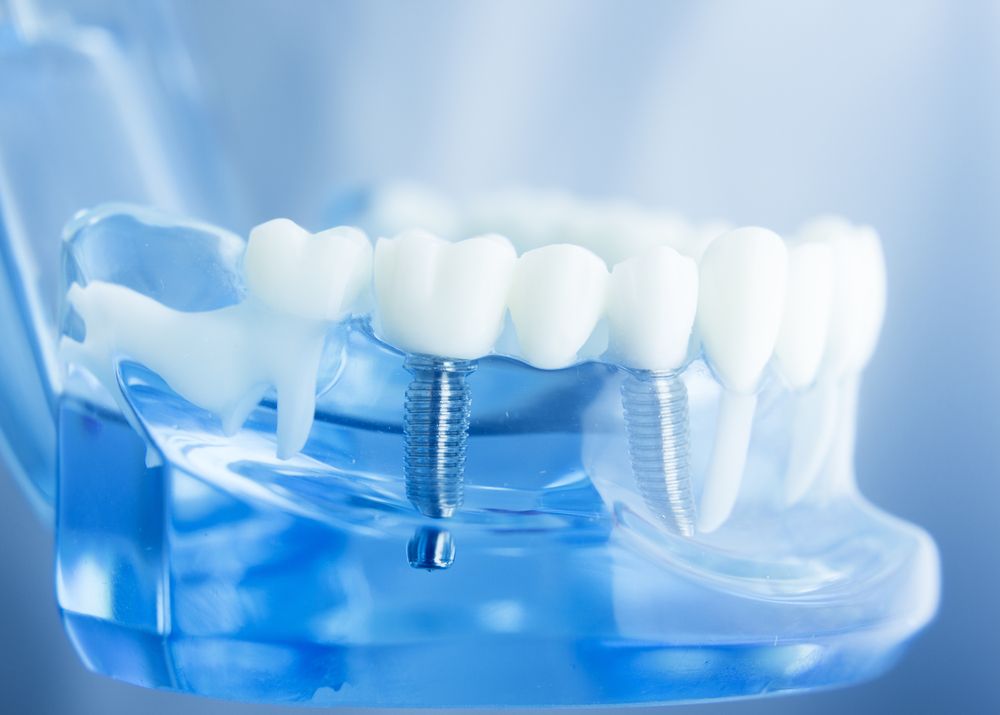
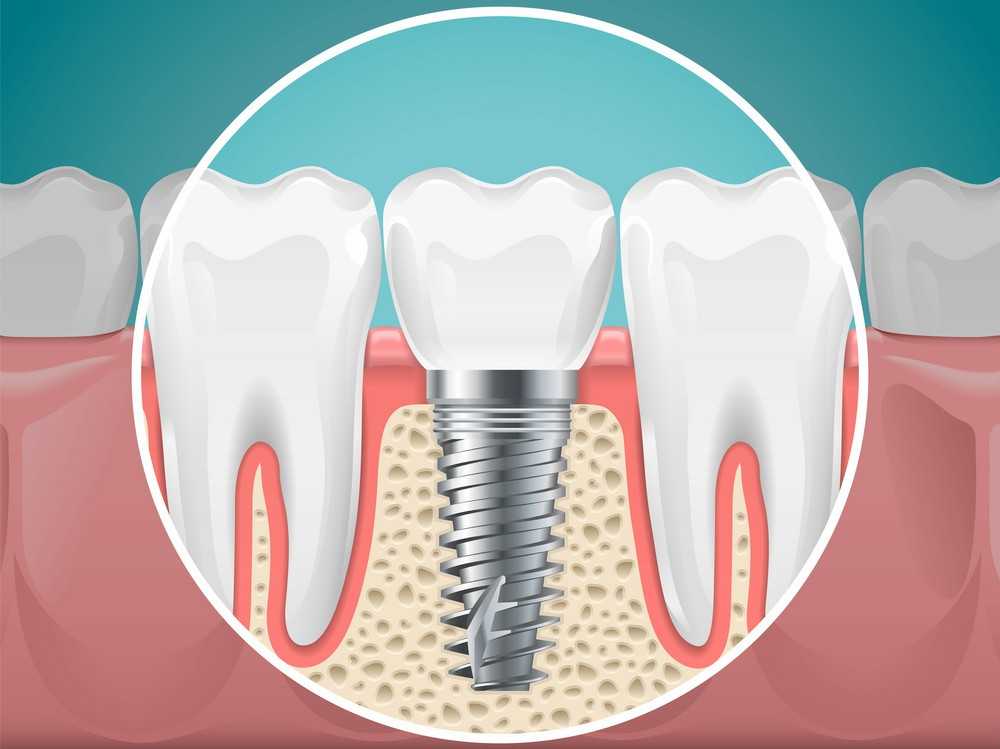
Benefits of Dental Implants
Dental implants offer multiple advantages compared to other tooth replacement options. Firstly, they restore a natural appearance, blending seamlessly with your existing teeth. Secondly, they provide excellent durability, with a success rate of over 95% when maintained properly. Functionally, implants restore chewing strength, allowing you to eat foods you may have avoided with missing teeth. They also improve speech clarity, unlike dentures which may slip while talking. Another significant benefit is their ability to preserve jawbone health by stimulating bone growth, which prevents sagging of the face. Implants also eliminate the need to grind down healthy adjacent teeth, which is often required for traditional bridges. Beyond the physical advantages, dental implants greatly enhance self-confidence, enabling patients to smile, speak, and socialize without hesitation. In short, dental implants are a long-term investment in both oral health and quality of life.
Procedure of Dental Implants
The dental implant procedure is typically carried out in several stages, ensuring precision and long-lasting results. It begins with a thorough dental examination, including X-rays and scans, to assess bone density and oral health. If the jawbone is strong enough, the implant surgery proceeds with the placement of a titanium post into the jawbone under local anesthesia. Healing time is crucial, as osseointegration—the fusion of the implant with the bone—can take a few months. Once the implant is stable, an abutment is attached, which acts as a connector between the implant and the crown. Finally, a custom-made crown is placed, designed to match your natural teeth in color and shape. The entire process may take several weeks to months, depending on healing, but the result is a secure, natural-looking tooth replacement that can last a lifetime with proper care and maintenance.
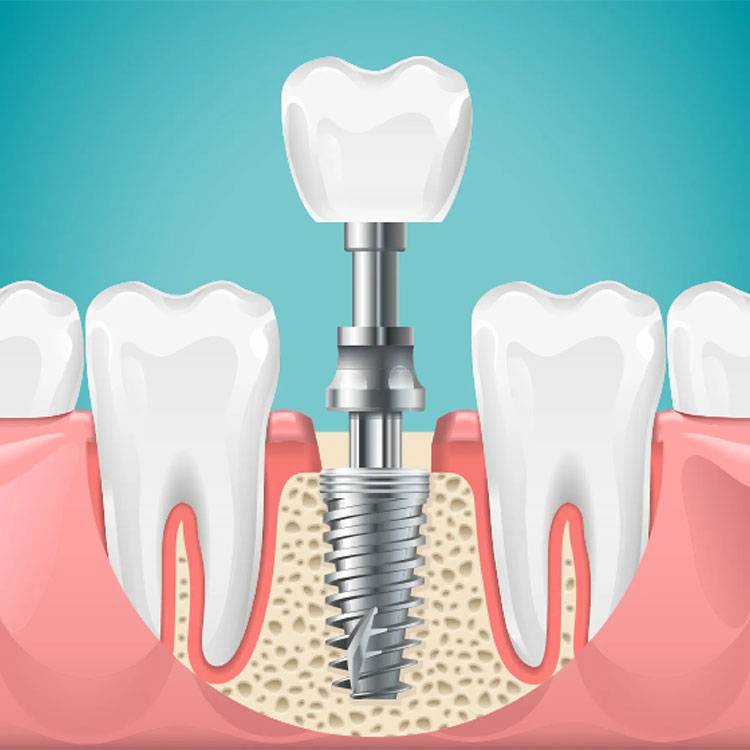
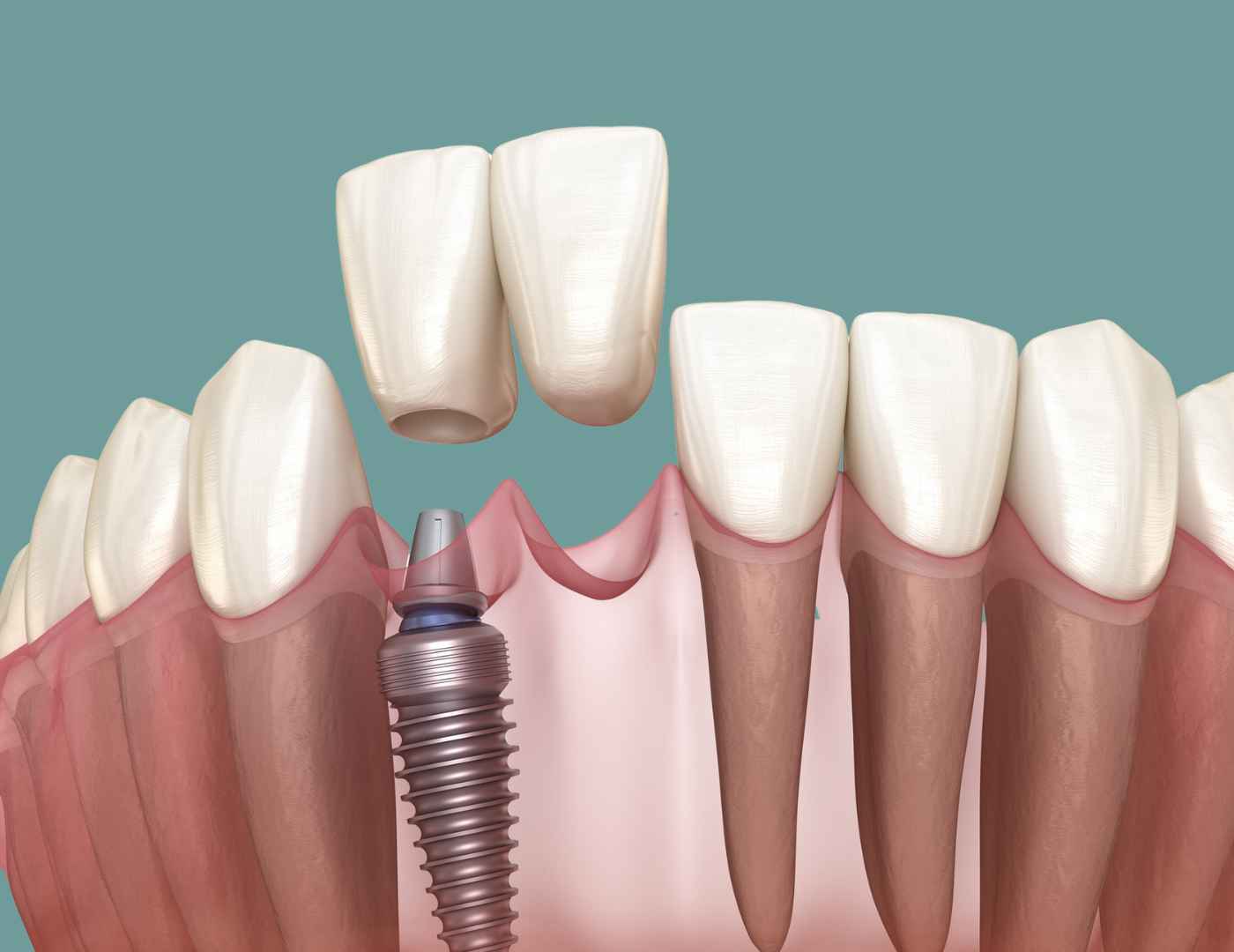
Ideal Candidates for Dental Implants
Not everyone is an immediate candidate for dental implants, but many patients can qualify with proper evaluation. Ideal candidates include adults who have lost one or more teeth due to decay, injury, or gum disease. Healthy gums and sufficient bone density are essential for supporting the implant. Non-smokers typically have higher success rates, though smokers may still undergo the procedure with additional precautions. Patients should also be free of uncontrolled chronic conditions like diabetes or heart disease, as these may affect healing. Individuals seeking implants should be committed to maintaining good oral hygiene and regular dental check-ups. Even if bone loss is present, procedures like bone grafting can prepare the jaw for implant placement. If you’re looking for a permanent, reliable solution to missing teeth, and want to restore both function and aesthetics, you may be an excellent candidate for dental implants.
Risks & Considerations of Dental Implants
While dental implants are considered safe and highly successful, there are a few risks and considerations to keep in mind. Minor risks include infection at the implant site, nerve irritation, or sinus complications if implants are placed in the upper jaw. In rare cases, the implant may not integrate properly with the bone, requiring removal and replacement. Patients with uncontrolled medical conditions, such as diabetes or weakened immune systems, may face a higher risk of complications. Smoking is another factor that can affect healing and reduce implant success rates. However, most risks are minimal and can be managed effectively with proper planning and post-operative care. Choosing an experienced dental professional significantly reduces these risks. Overall, dental implants remain one of the most predictable and safe treatments available in modern dentistry, offering life-changing benefits when performed under proper guidance.

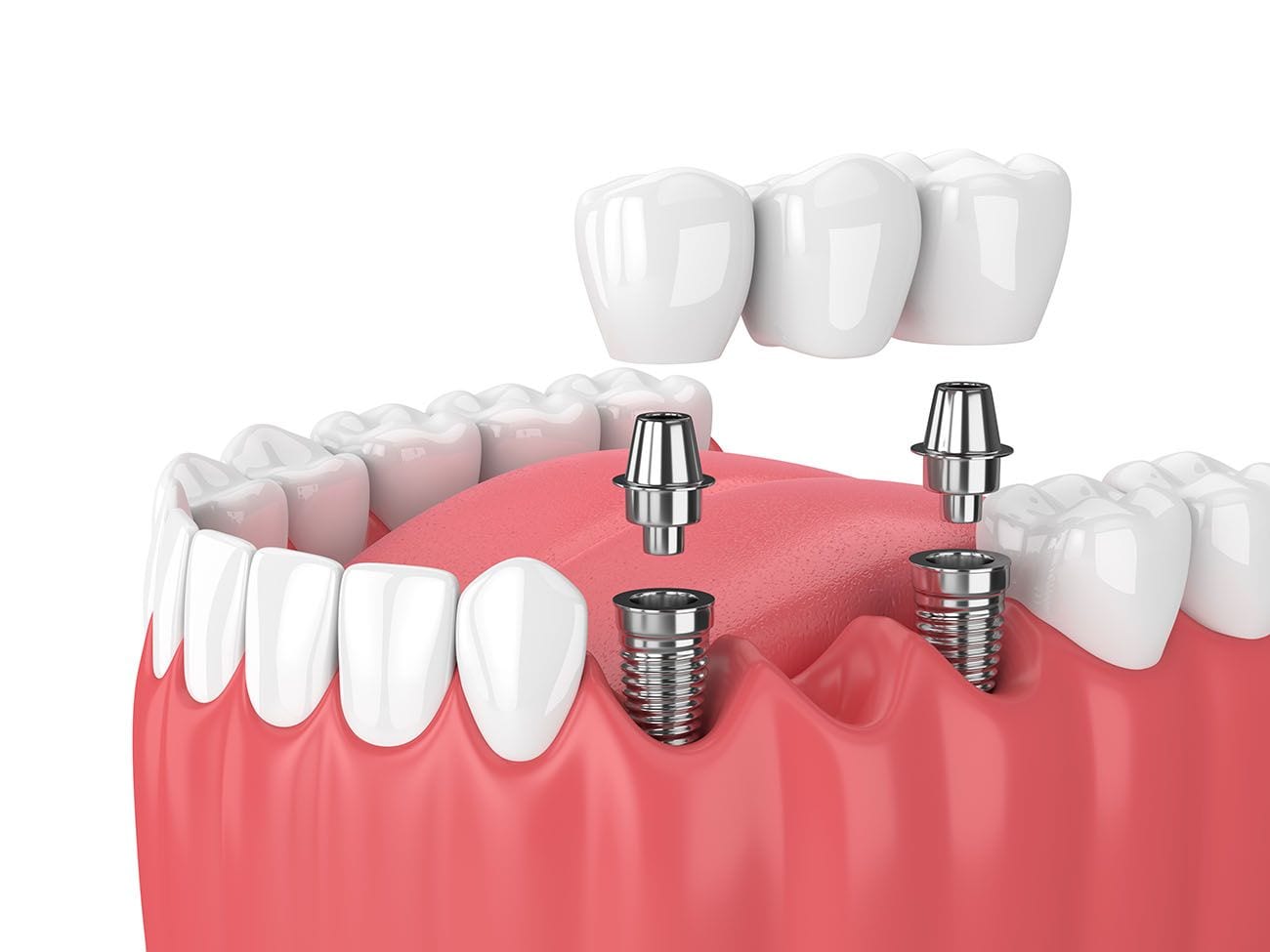
Success Rate & Why Choose Us
Dental implants boast a success rate of over 95%, making them one of the most reliable dental treatments worldwide. Success depends on factors like bone quality, oral hygiene, and lifestyle habits, but with proper care, implants can last 20 years or more, often a lifetime. At our clinic, we combine advanced implant technology, precise surgical techniques, and personalized care to maximize outcomes for every patient. Our team focuses on comfort and safety throughout the procedure, ensuring you feel at ease from consultation to final restoration. With a patient-first approach, we provide comprehensive aftercare and guidance to help you maintain your implants for years to come. Choosing us means choosing a clinic committed to restoring your smile with expertise, compassion, and long-lasting results. Your confidence and oral health are our top priorities—let us help you smile without hesitation again.
FAQS
Is getting a dental implant painful?
Most patients report minimal discomfort during the procedure as it is performed under local anesthesia. Mild soreness may occur afterward, but it is usually manageable with over-the-counter pain relief.
How long does recovery from dental implant surgery take?
Initial healing takes about 1–2 weeks, while complete osseointegration may require 3–6 months. During this period, most patients can resume normal activities quickly with proper care.
What is the cost of dental implants?
The cost varies depending on the number of implants, type of restoration, and additional treatments like bone grafting. A consultation is the best way to receive an accurate estimate tailored to your needs.
